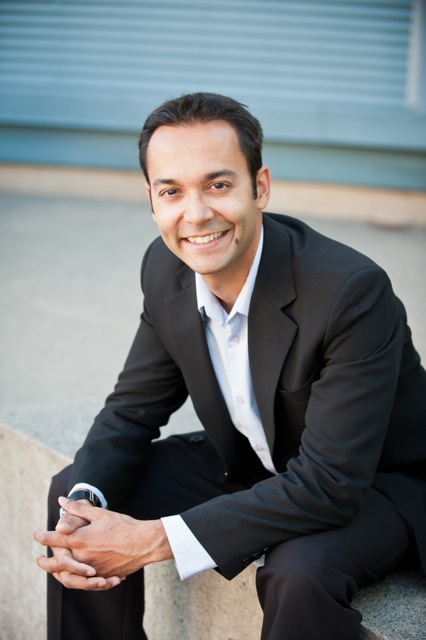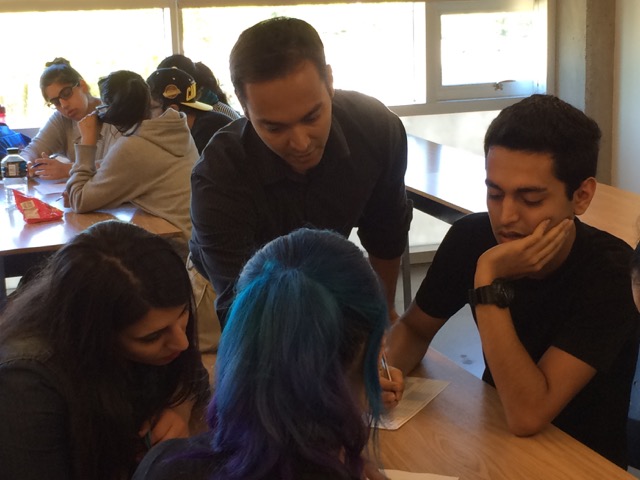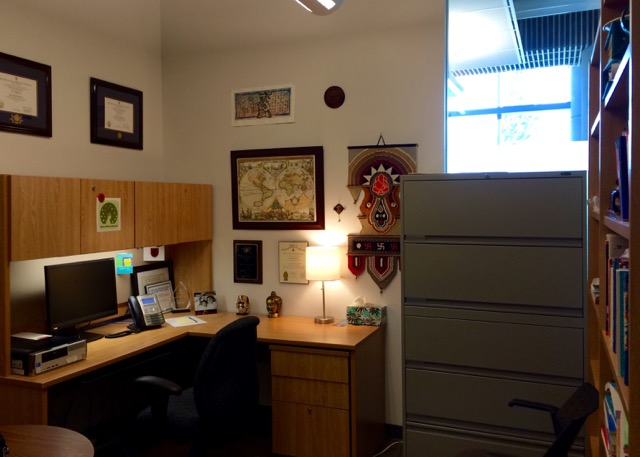Where I teach: Kwantlen Polytechnic University
Type of college/university Mid-size public undergraduate university
School locale Urban campus in a suburb of Vancouver, BC, Canada
Classes I teach: Introductory Psychology, Research Methods, Statistics, Social Psychology, Personality Psychology, Cognition, Conservation Psychology, and the Psychology of Genocide
What’s the best advice about teaching you’ve ever received?
To be yourself in the classroom and let your personality shine through your teaching. To tell stories if you are a storyteller, to use humour if it comes naturally, and to self-disclose if it feels appropriate. Also, to take a scholarly approach to teaching.
What book or article has shaped your work as a psychology teacher?
There are many such books (e.g., What the Best College Teachers Do by Ken Bain), but instead I am going to go with a blog post by David Wiley titled “What is Open Pedagogy?”
Tell us about your favorite lecture topic or course to teach.
I love talking about the Stanford Prison study (no, it is not an experiment). But not in the way that you would think. I first teach it as Zimbardo would. And then I begin to ask a series of probing, Socratic questions that lead the students to deconstruct the study until it patently clear that the emperor has no clothes and that there is actually plenty of evidence that supports a dispositional interpretation.
 Describe a favorite in-class activity or assignment.
Describe a favorite in-class activity or assignment.
An in-class exercise that I primarily use to demonstrate the prisoner’s dilemma and group decision-making. The class is split into two groups, each of which is informed that they are the joint owners of a gas station. The owners of each gas station (which are located across the street from one another) must decide on the price of their gas without knowing the price across the street. This decision is made 14 times in order to simulate 14 days of competition. The exercise is inevitably engaging, hilarious, and illustrative.
What teaching and learning techniques work best for you?
I incorporate low-stakes mastery quizzing, peer assessments, and in-class exams with two stages - an individual attempt, followed by a group discussion and a second individual attempt.
 What’s your workspace like?
What’s your workspace like?
I like to keep things fairly neat, with paperwork organized and filed, and books sorted by category on bookshelves (potential “behavioral residue” of conscientiousness, to use Gosling’s terminology). I also love to surround my space with art, old maps, vases, sculptures, and other artifacts (behavioral residue of openness?). And photographs of my boys, of course!
Three words that best describe your teaching style
Interactive, humorous, and experimental
What is your teaching philosophy in 8 words or fewer?
Fostering skill development via rapport, relevance, and rigor
Tell us about a teaching disaster (or embarrassment) you’ve had.
One semester early in my teaching career I found myself teaching full time (four courses) at one institution while teaching two additional courses at another institution as an adjunct (you can probably guess that these were the days before our children were born). I recall one day in particular when I emerged from a meeting and entered my classroom, unable to recall with any certainty what topic we were meant to be discussing that day! Of course I ended up asking the class (after explaining the source of my discombobulation, which they found hilarious). We ended up referring to my case over the semester whenever we talked about the limits of human cognition.
What is something your students would be surprised to learn about you?
For about seven years I was a member of a professional dance company and performed in productions ranging from musical theatre to large arena shows, as well as television and (Bollywood) film. Interestingly, I have found that many of the skills I developed during this time transfer rather well into the classroom.
What are you currently reading for pleasure?
Sacred Games by Vikram Chandra (set in my hometown of Bombay, India) and All the Light We Cannot See by Anthony Doerr.
What tech tool could you not live without?
Confession: I use a fair bit of tech – Prezi, Skype, online peer assessment platforms, online office hour booking systems, Dropbox, Google docs, Wordpress, etc. But the tool that I find the most useful is undoubtedly Twitter. I have found that there is no better way to keep abreast of new developments, make connections, and disseminate psychological science widely. You can find me online @thatpsychprof.
What’s your hallway chatter like?
We talk a lot about teaching (challenges and strategies) and the scholarship of teaching and learning, but lately have been discussing open educational practices (e.g., open textbooks, open pedagogy, etc.) rather a lot. That last bit is probably my fault. When we are not talking shop we talk about what we are reading (we have a book club), our kids (many of us have young children), and when we will next get together outside of work (we are a pretty social bunch).
